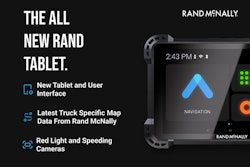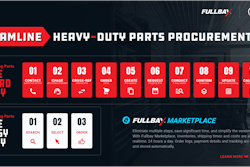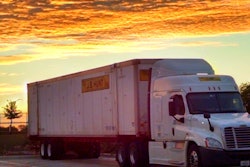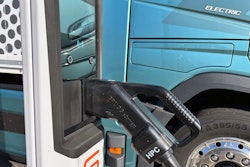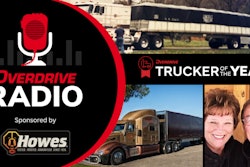Trucking news & briefs for Oct. 19, 2021:
NATSO, other business associations blast legislative proposals to change qualified business income deduction
The National Association of Truck Stop Operators joined a variety of small-business and other trade associations, including the National Federation for Independent Business, to call for Congress to reconsider recent proposals to reduce the benefit obtained through the Section 199A "qualified business income" deduction for so-called "pass through" entities, businesses whose taxes are paid through the owner's personal tax return.
In a jointly signed letter to Congressional stakeholders, the various associations note that "while we welcome the provisions of the proposed bill," namely Senate bill 2387 or the Small Business Tax Fairness Act, "that would simplify the calculations of the 199A deduction and remove the distinction between different types of pass through entities," tradeoffs for that simplification were deemed objectionable. Namely, according to the letters' signatories, those tradeoffs include "complete elimination of the deduction for taxpayers with incomes over $500,000," and with "a phase out starting at $400,000."
The signatories have similar concerns about a similar approach agreed to by the House Ways and Means committee recently, they said.
The vast majority of owner-operators -- with net income well below the proposed $500K cutoff or $400K phase-out level -- wouldn't be impacted should such a change come to fruition, yet some small fleet owner-operators may, depending on income level.
NATSO and fellow associations urged Congress to "eliminate any income threshold amount which cuts off the deduction entirely and to add a provision to make 199A permanent."
The 199A deduction for pass-through entities was a product of the 2017 Tax Cuts and Jobs Act, and has been scheduled to sunset as an option at the end of 2025.
[Related: Owner-operator average income at mid-year in record territory after 10%-plus gain]
Samsara introduces new custom possibilities for its Workflow Builder tool
Late in September, the Samsara company introduced new custom workflow-building opportunities for any back-office fleet manager to push through the company's driver app to help field personnel.
End-of-day workflows can help ensure drivers complete the right tasks in the right sequence before signing out for the day, whether it’s that means submitting a post-trip vehicle inspection report, certifying daily logs, or completing a custom health form.
Linked third-party tasks can make it easier for drivers to access different apps in a single workflow. With the rise of mobile devices has come a proliferation of mobile apps. In the last few years, the average number of software apps that an employee accesses at work has risen by 68%, Samsara said, and introducing too many apps can run the risk of a kind of information overload and wasted time navigating between apps.
Small fleet managers, Samsara said, will now be able to help drivers access all of their apps within a single workflow in the Samsara Driver App. When a user builds a start- or end-of-day workflow, they can add tasks that directly link drivers to third-party apps. Uses include, for instance, the ability to onboard new drivers with training content on YouTube, improve engagement by linking drivers to your company’s internal app, or let drivers access one of the 125 integrations available on the Samsara App Marketplace, the company added.
Multiple workflows help you customize workflows to the needs of every driver. Users can quickly customize different start- and end-of-day workflows to guide every driver — whether they’re behind the wheel or in the field, whether ELD-required or ELD-exempt. A user might create, for instance, one start-of-day workflow that requires ELD drivers to certify their HOS logs, and a second workflow that allows ELD-exempt drivers to skip that step.
